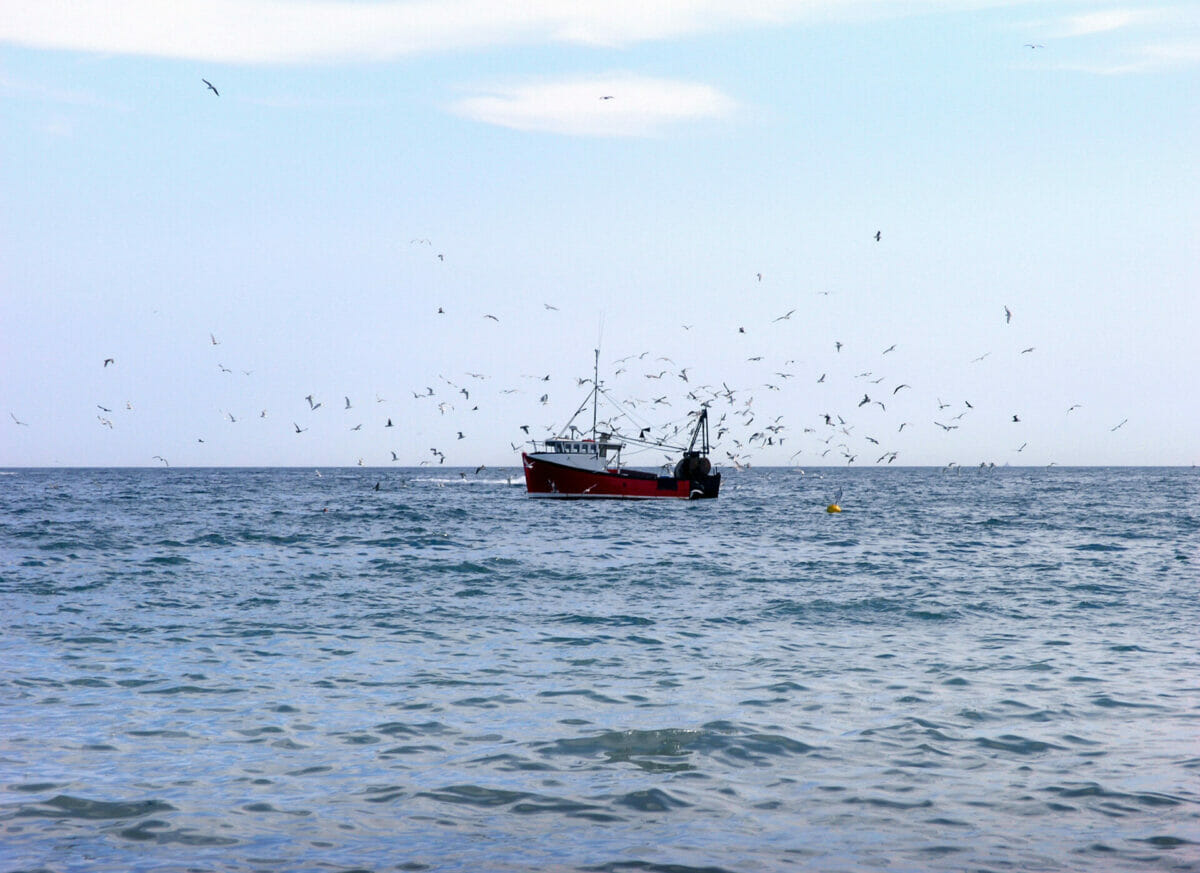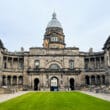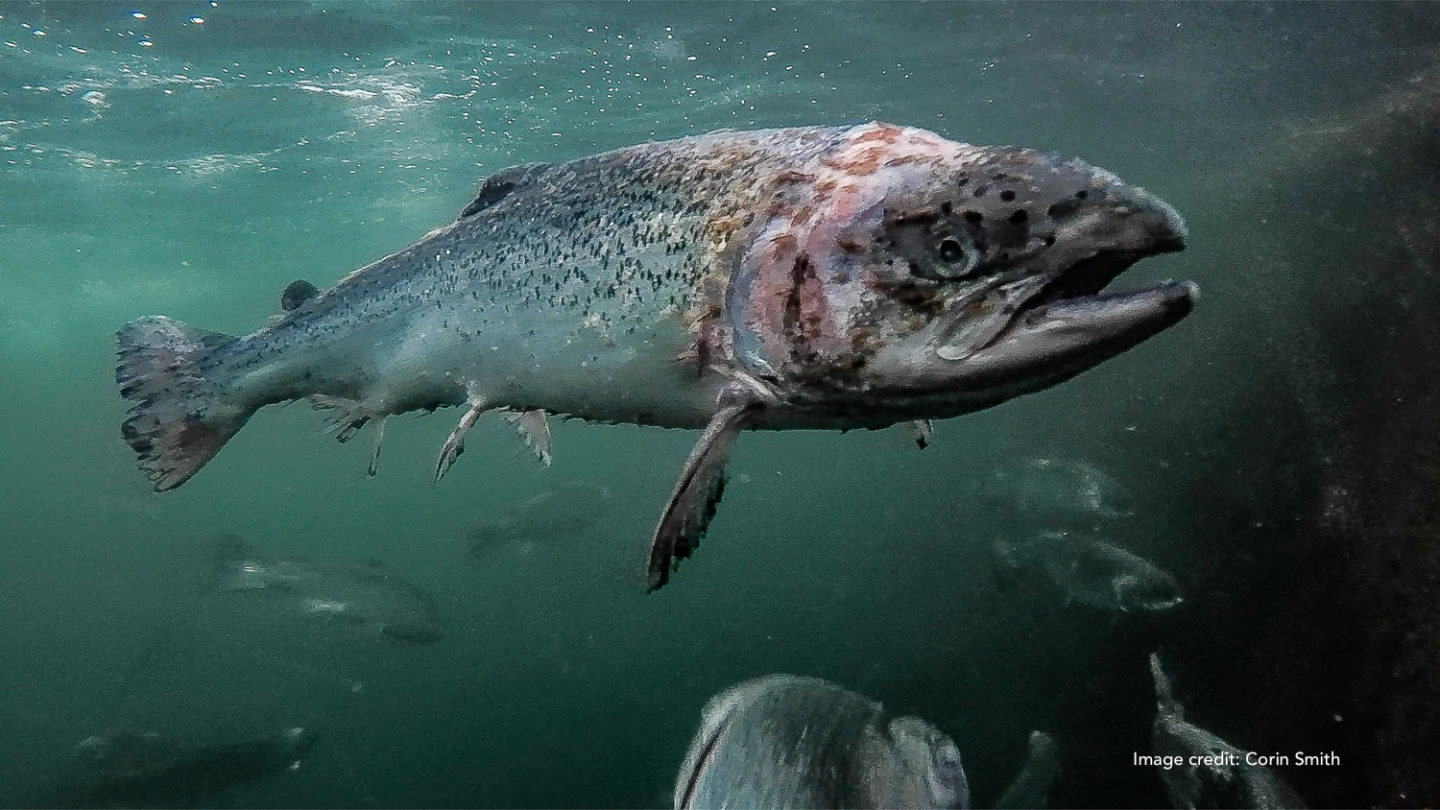A former Scottish salmon farming boss accused of spying on a key critic of the industry is among the directors of a firm aiming to build the UK’s largest fish farm in Grimsby.
According to Companies House, Craig Anderson is a “person with significant control” of AquaCultured Seafood Limited, which submitted early stage plans for a £75m onshore salmon farm in the English town at the end of last year.
Anderson was the chief executive of the Scottish Salmon Company (SSC) who asked a private investigator to compile an ‘intelligence report’ on the anti-fish farming campaigner, Corin Smith, as first revealed by The Ferret in November 2021.
The intelligence report included analysis of Smith’s movements and behaviour, searches of his financial and legal history, and pictures of his house. One environmental group said at the time that the SSC had used “Big Brother levels of corporate snooping” against Smith.
Planning documents submitted by consultants on behalf of AquaCultured Seafood claim that the new onshore fish farm in Grimsby could produce 5,000 tonnes of whole salmon each year. If given the green light by North East Lincolnshire Council, this would make it the single largest fish farming site in the UK, creating over 100 jobs.
However, Corin Smith told The Ferret he would be “very concerned” about any project involving Anderson and warned Grimsby residents that he would not touch the people behind the application “with a barge pole”.
Meanwhile, other campaigners warned the proposal could be cruel to the farmed fish and negatively impact the local environment. One claimed that the proposal is for a “factory salmon farm” which could be a “welfare nightmare and ecological disaster”.
The site proposed for the farm is close to Blundell Park, home to FA Cup quarter-finalists, Grimsby Town, who are nicknamed “the Mariners” due to the town’s status as a hub of the UK fishing industry.
One activist suggested the club may have to swap its current mascot, Harry Haddock, for “Skanky Salmon” if the farm is approved.
AquaCultured Seafood has been asked to comment.
Grimsby Town FC may have to swap for their Harry Haddock mascot for Skanky Salmon if this monstrous proposal gets the green light.
Don Staniford
‘Alarm bells’ for residents
Smith obtained details of the spying on him by submitting a subject access request (SAR) to the SSC and other companies in the Scottish fish farming sector. Individuals can use SARs to compel firms to release any personal information held about them.
The entire Scottish salmon farming industry held over 2,000 pages of emails and other correspondence about Smith.
His activism includes swimming out to – and flying drones over – commercial fish farms to film the conditions that fish are kept in. The industry argues that by doing this he breaches “stringent health, safety and biosecurity rules”.
The SAR response from the SSC included a disclaimer from the company noting that the intelligence report was “prepared at the request of a former chief executive” and “solely for his benefit”.
Anderson stepped down as chief executive of SSC in late 2019 after the company was bought over by the Faroese firm, Bakkafrost. The intelligence report is dated 28 November 2018, when Anderson was still in charge of the firm.
Our initial report on the spying on Smith did not name Anderson because we were unable to contact him to provide him a chance to respond.
Smith claimed that Anderson’s involvement in the Grimsby project means “alarm bells should be ringing like crazy” for local residents. Smith said: “I’d be very concerned about any development that he is associated with.
“When I pointed out the impact his salmon farms were having on wild salmon and the local pollution being caused, rather than deal with the issues, he commissioned a private investigator to snoop into my affairs and track my movements.
“I wouldn’t touch these people with a barge pole.”
Environmental concerns
Alongside concerns about Anderson’s involvement in the proposed Grimsby project, there are also fears that it could harm animal welfare and the local environment.

If approved, the farm will produce 1,000 cubic metres of effluents – sewage and liquid waste – every day, and this will be discharged into the nearby Humber Estuary, which is designated as a special area of conservation and a site of special scientific interest.
AquaCultured says this effluent will be treated to “a very high standard” before it is discharged.
The project itself is proposed for a site which has been designated as a local wildlife site. Grimsby residents have claimed that the land there – a former railway siding – is home to families of deer, species of endangered butterfly, and migrating birds which will be displaced if the project goes ahead.
Meanwhile, animal welfare campaigners claimed that the proposed use of a recirculated aquaculture system (RAS) at the Grimsby farm means “fish welfare is likely to be poor”.
Dr Nick Palmer, head of Compassion in World Farming UK, told The Ferret that RAS systems “typically use very high stocking densities and confine fish to barren tanks devoid of environmental enrichment” meaning their behavioural needs are not met.
Palmer also pointed out that the salmon reared at in Grimsby will be given feed containing wild-caught fish.
“This practice puts additional pressure on our already overfished wild populations and impacts other wild animals that rely on those fish to survive,” said Palmer, who urged North East Lincolnshire council to reject the project.
“There are other environmental concerns too – RAS are energy intensive, and many systems also rely heavily on precious resources like freshwater. It is estimated that to produce one salmon fillet in a RAS system, it takes as much freshwater as one person would drink in a whole year.”
Read more of The Ferret’s coverage of the fish farming industry here
The planning documents, submitted by property consultants Montagu Evans, detail a range of measures that AquaCultured says will conserve water resources and limit pollution and environmental damage from the fish farm.
Don Staniford, the director of $camon $cotland – who has been involved in local protests against the proposal – said that “cramming” salmon in land-based tanks could be “a welfare nightmare and an ecological disaster”.
He claimed the proposal was for a “factory salmon farm” with indoor tanks that would be like “torture chambers” for the fish housed in them.
“Local residents are revolting against this super-sized salmon farm,” Staniford said. “Noise pollution, impacts on wildlife and the bad smell emanating from the 40,000 square metre development have already spawned community objections.
“Grimsby Town FC may have to swap for their Harry Haddock mascot for Skanky Salmon if this monstrous proposal gets the green light.”
AquaCultured Seafood did not respond to requests for comment by The Ferret.
The company told local media last month the Grimsby facility will be “state of the art” and the town was selected for the project because it is “the largest seafood processing cluster in Northern Europe”.
The firm added: “The project has received excellent support from local businesses and politicians and will feature cutting edge technology to become one of the most environmentally friendly ways of producing nutritious food, and making Grimsby a world-class centre of excellence for the modern fishing industry.”
Cover image credit: Corin Smith














Can we please be clear that the proposed salmon factory would be in the Sidney Sussex ward of Cleethorpes, i.e. NOT IN GRIMSBY. It is only the access road that starts in Grimsby. But, then again, a train journey to Cleethorpes can start at Kings Cross, so maybe the factory should be described as being in London.
Lots of inaccurate reporting here. Too many to list but take this point and alter the story.
The fish will be fed on wild fish? Well, recyclable head and boards (bones) are heat treated and turned to pellets. Not trawled while wild fish as basically stated above.
Salmon farm are destroying wild salmon in Scotland. The effluent from the cages kill the wild salmon which swim under the cages on there way to Scottish rivers. There are thousands of tonnes from the cages are taken to refuse sites due to not fit to eat. They are covered in sea lice . It is recommended that pregnant woman do not eat more than 2 portion of salmon per week due to high levels of antibiotics. Even with using antibiotics which is usually high than recommended levels they cannot control vast losses of fish. If you see the state of the fish most people would not touch salmon . These issues are common throughout the industry
Farmed salmon are not Salmon the name Salmon has been given to a hybrid to make it commercially attractive. I believe its colour is normally white until tinted. Norway & Chile have large facilities .The N.American First People are closing their’s down to allow the wild salmon a better environment . Why our little island needs to use its cramped resources to compete with large Continental facilities beats me unless the UK Gov has been persuaded to give grants & low interest loans.